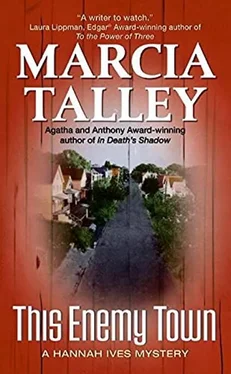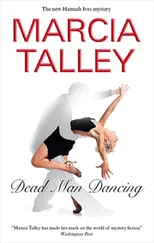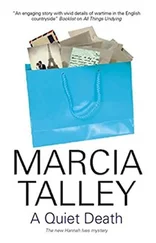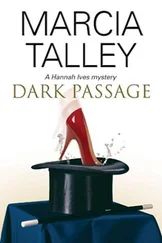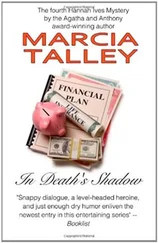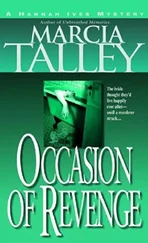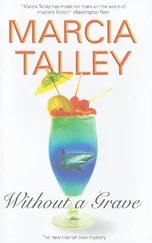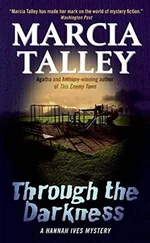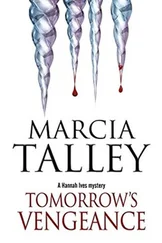All the same, I thought I might mention it to Dorothy. If Kevin had his sights set on flying FA18s for the Marines, a charge of sexual harassment would quash any dream he had of becoming a flying cowboy pretty damn quick. In this PC environment, he’d leave the Academy with a rocket tied to his tail.
Dorothy had lost faith in her husband. If Kevin were kicked out of the Academy, it would be more than a disappointment. She would probably survive the cancer, she might even survive a divorce, but that kind of news about Kevin could very well kill her.
At Tuesday’s rehearsal Dorothy pooh-poohedmy concerns about Kevin, but thanked me for them anyway.
We sat together in the center of the theater with Professor Medwin Black in the row just in front. On stage, the woman playing Joanna finished singing a sweet version of “Green Finch and Linnet Bird” that nearly broke my heart.
“My God,” Dorothy whispered. “That girl should be on Broadway.”
A few seats over, the unpleasant Greta James was muttering under her breath. If she was trying to impress the good professor, it wasn’t working. He uncrossed his legs, stood up, leaned across several rows, tapped her lightly on the shoulder and growled, “Enough!”
“Sorry.” Greta hunkered down; the hat she wore for her role in the chorus caught on the back of the chair and tipped over her eyes.
“The minute the cast is announced,” Professor Black complained to me, sotto voce , “the women all turn on each other. All the girls hate the female lead.” He waved a finger at the back of Greta’s head. “Sometimes I think we should be doing Cats .”
I laughed out loud.
It was nearly time for Greta’s entrance, so she gathered her costume about her and scurried away.
“That little missy,” Professor Black went on after Greta was out of earshot, “sent me a six-page letter outlining the flaws in our casting process and detailing how much better she’d be in the role of Joanna. She’s a good actress, but she couldn’t carry the role vocally. It’s always a balancing act.”
Dorothy shifted uncomfortably in her seat, then seemed to gather confidence. “How come Kevin didn’t get a lead?”
“Ah. Good question.” Professor Black leaned back in his chair, his hands folded prayerfully across his chest. “With Kevin, it was a tough call. He could easily have handled the role of Beadle-that’s why we’ve got him understudying it-but Adam Monroe did a terrific job, too, and he’s a firstie, so that had to carry some weight.” The professor smiled at Dorothy in the semidark of the auditorium. “Kevin will get his shot at the big-time next year.”
“Oh, yes? What show are you doing?” I asked.
Professor Black half belly-laughed, half snorted. “That’s what everyone wants to know, and we haven’t even gotten through this year’s musical yet!”
“Ballpark it for me,” said Dorothy.
“Well, if I were guessing, I’d say Gilbert and Sullivan. HMS Pinafore , to be exact. It’s one of the music director’s favorites and he’s been after me for years to do it.”
I turned to ask what Dorothy thought about the music director’s choice of HMS Pinafore and caught her staring at the stage, her face alight with pride, as Kevin as asylum keeper, Jonas Fogg, began his big scene with Anthony, the romantic lead. Anthony was aiming a pistol at her son, but he wavered, lost his nerve, dropped the gun. Joanna caught it and shot Kevin point-blank dead, but a few minutes later Kevin had sufficiently revived to join us.
Dorothy pulled down the seat of the chair next to her, but Kevin decided to sit at the end of the row just in front of us.
“That was terrific, Kev,” Dorothy said.
Her son whipped off his wig and arranged it carefully over one knee. “Thanks. You didn’t think I played it too weird?”
“It was just right,” I cut in. “Loved the way you handled the scissors. Reminds me of the mad scientist in Back to the Future . What’s his name?”
“Christopher Lloyd?”
“Yes, that’s the guy.”
“Thanks, ma’am.”
Suddenly Kevin stiffened. In the semidark he turned to scowl at his mother. “What’s Dad doing here?”
Dorothy’s head spun around so fast that I thought she’d get whiplash. Weaving his way through the auditorium toward us was a tall man dressed in civilian clothes. Ted Hart was an older version of his son-grayish hair still slightly red, wearing chinos and a leather bomber jacket which he unzipped as he eased between the seats.
“Am I too late?” he inquired, taking a seat right next to me.
“Just finished, Dad.”
“Damn! I’m sorry.” He favored me with a grin. “And this must be Hannah. Am I right?”
I extended my hand. “Right.”
“Dorothy says she doesn’t know what she’d do without you.”
“She’d be just fine, Admiral. The midshipmen do most of the work anyway. I mean, what I don’t know about wing nuts and mitered corners could fill an encyclopedia. Paintbrushes I can handle.”
“It’s Ted, Hannah. Call me Ted.” Even in the darkened theater his smile dazzled.
Kevin rolled his eyes and looked away.
“Ted, then.” I stole a glance at his wife. “The work keeps us out of trouble and off the streets, in any case.”
“It’s fun seeing it all come together like this,” Dorothy said, changing the subject.
“Is it still snowing?” I asked the admiral, thinking about the wet fat flakes that had been coming down earlier and about my cold walk home.
“Yes. Like Merry bloody Christmas.”
The admiral’s jacket, I noticed, was completely dry. But he was an admiral. Maybe it didn’t dare snow on him.
When the mids broke for dinner, the Harts, Admiral and Mrs., left for home together, and I hustled onstage to finish up on Mrs. Lovett’s harmonium. I spread a newspaper out to protect the floor and quickly sprayed the decorative scrollwork a bright gold. When I prepared to attach it to the front of her harmonium, though, I realized I’d left the box containing my hot glue gun wrapped up in my sweatshirt down in the Jabberwocky room.
By then the cast had reassembled on stage and the Pair-o-Docs was giving them notes, so I stepped between Mrs. Lovett’s oven and the end of the body chute and trotted down the stairs to find it.
On the landing, I paused. Someone was in the Jabberwocky room, sitting on the sofa reading Trident, the Academy’s good news newspaper. On the front page of that week’s issue were two color pictures taken at last week’s rehearsal. In one, Sweeney and Mrs. Lovett stood, arms locked, their razors and rolling pin held high, respectively. Emma was featured in another picture in all her ragged regalia, grinning toothsomely, with one of her incisors painted a disconcerting black.
“Oh, excuse me,” I apologized brightly. “Forgot my glue gun.”
The person reading the newspaper looked up. It was Jennifer Goodall.
I stared at her, my mouth ajar. She eyed me coolly, with disinterest, without the slightest spark of recognition in her eyes.
Although she had no reason to recognize me-our paths had never officially crossed-it made me furious that the woman responsible for very nearly wrecking my marriage didn’t even know who I was. It seemed like only yesterday that deceptively innocent face had smiled out at me from the pages of too many newspapers, from behind too many microphones on too many broadcasts of the six o’clock news. Now, five years later, the face was leaner, the wrinkles around the eyes more pronounced, but Jennifer was still a very attractive young woman.
She was wearing the Naval Academy version of civilian clothes-chinos and a navy blue polo shirt-and no name tag.
Читать дальше
